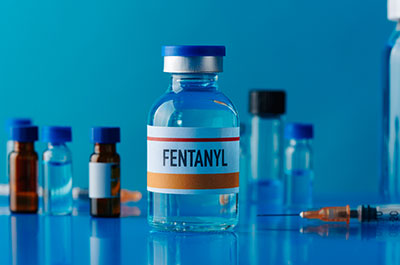Most of us understand pain. We've experienced a burn, cut or even a broken ankle or toe. This acute pain comes on suddenly and usually resolves within days or weeks. Chronic pain, on the other hand, can occur anywhere in the body. It lasts for months or even years and impacts every aspect of a person's life, including mobility, sleep, appetite, energy level and relationships.
More than 50 million Americans suffer from chronic pain, according to the Centers for Disease Control and Prevention. That's more than 20% of the population.
Common experiences of chronic pain include the following symptoms (and many others):
- Head, back and nerve pain
- Tingling
- Joint pain
- Arthritis
- Insomnia
- Depression/anxiety
- Breathing difficulties
- Post-trauma pain
Conditions that can cause chronic pain range from traumatic injury and post-surgical pain to endometriosis, cancer and chronic fatigue syndrome. Even aging and accompanying conditions, such as arthritis, joint pain and dementia, can lead to chronic pain.
"Unfortunately, most patients aren't just dealing with pain," says Tyler Trahan, M.D., an internal medicine and addiction specialist at Henry Ford Health. "Often the pain interferes with daily activities and can lead to depression, anxiety and social isolation." Add it all together and it's not uncommon for patients to fiddle with their dosing instructions and take two pills instead of one. That's what sets the stage for addiction.
Chronic Pain And Addiction
Unfortunately, chronic pain and associated syndromes are complex and difficult to treat. Many people require a cocktail of medications to address different aspects of a pain syndrome. A person with fibromyalgia, for example, may experience bone pain, tenderness and sensitivity while also grappling with depression, fatigue and anxiety.
To make matters more complex, most medications used to treat pain are highly addictive. Opioids such as Percocet, OxyContin and Vicodin flood the brain with the “feel-good” chemical, dopamine. Over time, the same medications that provided relief can lead to more pain, a condition called opioid-induced hyperalgesia.
"What happens is your pain receptors become desensitized to the medication and more sensitive to the pain," Dr. Trahan says. At the same time, you develop a tolerance to the medication, meaning you need larger amounts to get relief — and that vicious cycle can set the stage for a full-blown addiction.
Since opioids belong to the same class of drugs as heroin, some people with chronic pain who can't get a higher dose of prescription opioids through their providers resort to heroin use. In fact, according to the National Institutes of Health (NIH), 80% of Americans who use heroin started by abusing prescription opioids first.
But there is some good news: If patients go on a sort of drug detox, with the help of a professional addiction specialist, they'll discover they feel much better with less pain medication. Eventually, they may be able to wean themselves off pain medication altogether.

See An Addiction Specialist
Reducing The Risk Of Addiction To Pain Medications
It's true that many people can take prescription opioids with no risk of addiction. But other people, especially those who have genetic predispositions or a history of substance abuse, are more vulnerable. Unfortunately, it's tough to determine who's who before the addiction happens.
"Everyone who takes a controlled substance is at risk of addiction," Dr. Trahan says. "That's why doctors have implemented better prescribing practices that minimize the use of opioids. Today, opioids are no longer a first-line treatment."
There are many potential treatments for chronic pain that don't increase the risk of addiction, including:
- Antidepressants for emotional pain
- Nonsteroidal anti-inflammatory medications
- Cognitive behavioral therapy
- Complementary treatments, such as acupuncture, meditation and certain supplements
- Physical therapy
- Medical management, such as chiropractic work and massage
"If you have chronic pain, it's important to have realistic goals," Dr. Trahan says. "You will probably always have some pain, but there are a variety of things we can do to help you maximize your quality of life and enjoy daily activities."
Being proactive and aware before you begin taking any type of pain medication can help reduce your risk of complications and addiction. If you or a loved one are suffering from challenges related to chronic pain and become addicted to medication, it's important to see a pain management and addiction specialist.
Reviewed by Tyler Trahan, M.D., an internal medicine and addiction specialist at Henry Ford Maplegrove.



